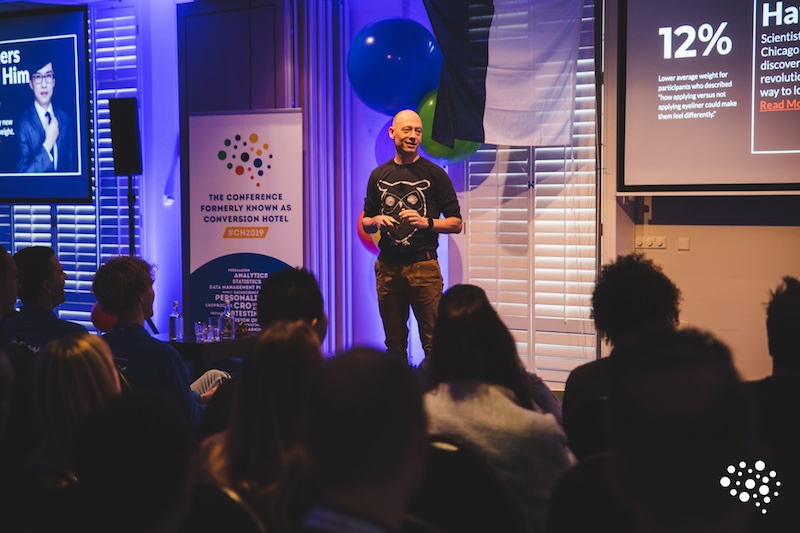Keynote: one neat trick to run better experiments
Lukas Vermeer (NL)

5 minute video summary
Faye – Marketing Analyst, feedback through our #CH2019 attendee survey:
Loved this session. Very nice level of information, great presentation.
Slides
Notes
Check the live notes of Lukas his talk
Questions asked by attendees through our #CH2019 app:
- How often does a SRM occur @ Booking?
- How do you know you’ve checked for all possible variables? Is there a defined list of variables?
- what is the difference between SRM and selection bias?
- Do tests exist that calculate expected SRM?
- What do we need to do with tests that have ran for weeks and than turn out to be suffering from SRM?
- If you have run a test or research, and there’s SRM, can you correct your results. Or is it game over (you probably answer this later in your talk)
- Should you also check SRM when both sample sizes are equal in number?
- Could cookie banners and consents be causing SRM? How to get around it?
- Google specifically says in their ab testing and Google search to specifically not exclude the bot or, because that’s against guidelines, but that could well be a big reason for SRM, what’s your opinion
- Could responsibility for SRM find itself into the contracts of experimentation tools, ideally acting as processors? Where does the liability for bias lie?
- Is SRM another word for response bias/sampling errors? Or is the difference in numbers, whilst being sampled proportionally , a problem as well?
- Is it possible to fix your data (with srm) after the test ended? And how? Cleaning data afterwards?
- When does a SRM error happens the most? At the beginning or the end of an experiment?
- Is it possible to decrease the risk of SRM by doing more research upfront?
- How do you have enough time writing papers and doing analysis while keeping up with the latest memes
- How do you check SRM with dynamic traffic allocation?
- Is SRM making multi armed bandit testing obsolete?
- How come SRM is only getting attention in the industry now?
- so talking about groups on test that are not equal. How do you correct for a test a the bottom of the page comparing it to the A group ?
- Can you have a SRM mismatch on a session level but not on a user level? Or vice versa
- What do we have to do to discuss this issue before testing/doing well at the start?
- Is SRM something that can happen in exact science experiments?
- If you have machine learning tests, how do you track srm?
- So conclusion: the more you know about data (SRM, false positives), the less we are sure about the results. Let’s start redesigning again 😄
Become an attendee at our next event!
The average #CH2019 attendee experience score on a 1 (awful) to 5 (awesome) scale was 4.71!
Get yourself on our #CH2020 email list!
Or check out our full #CH2019 overview!

